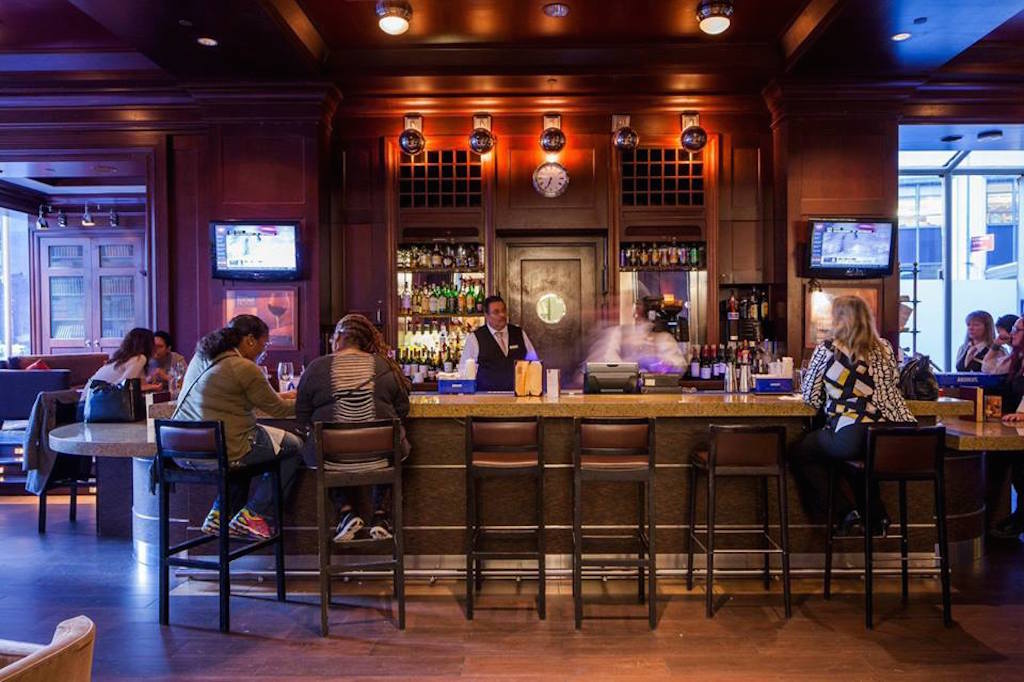Skift Take
Roots run deep between Host Hotels and Marriott, obviously. But the fact that Host also owns properties that fly under Starwood and Marriott's brands, among others, gives its perspectives on ownership and operations some serious weight when talking about the future of the big merger and the direct booking wars.
Host Hotels & Resorts, the Bethesda, Maryland-based real estate investment trust (REIT) spun off from Marriott in 1993, delivered an owner’s perspective on what the upcoming Marriott acquisition of Starwood could have on its portfolio.
The majority of Host Hotels’ 114-property global portfolio skews heavily toward brands from Marriott and Starwood. Some 63, or 55% of its hotels fall under Marriott brands and 30, or about 26%, are Starwood-branded properties. Because 81% of its properties are either Starwood or Marriott hotels, it’s clear Host Hotels has a clear stake in the successful integration of both companies.
In some markets, like New York City, for example, Host owns and/or operates both Marriott and Starwood hotels, including the Marriott Marquis Times Square and the Sheraton New York Times Square, which are only a few blocks away from each other.
During an earnings conference call on April 29, Host Hotels CEO W. Edward Walter said that while it’s still early to tell how the integration will go, he feels optimistic about the merger.
“We see both positives and benefits from this,” Walter said. Not only that, but Walter said he believes a combined company will help Host be even more profitable. He said that if all of Hosts’ Starwood properties sat within Marriott now, comparing cost structures and leaving out management fees, Host Hotels would save on costs and see margin gains.
Recently, Host Hotels held an annual meeting of its general managers from around the world and the mood among those from Starwood and Marriott properties was, Walter said, “enthusiastic.”
But like everyone else in the industry, Walter also notes a “challenge” in relation to the “number of brands that will all sit within one family.” Once the merger is completed, the combined Marriott and Starwood will have 30 brands spread out over 5,500 properties and 1.1 million rooms. He said, “It’s important to be thoughtful about how to distinguish those brands.”
He also said that he’s expressed his concerns about salesforce integration to Marriott and that he’s been talking to the company about what may happen next.
“We are certainly concerned, as anyone should be, that when two large companies that represent a large chunk of your portfolio are merging,” he said. Still, he’s confident Marriott has the experience to make sure the merger goes smoothly.
“[Marriott] understands the importance of getting that right, not only for our own sake but for their success, too. Marriott has always been very good at execution. I think they are aware of what they are heading into, and doing the best they can to manage that process.”
Direct Booking Impacts
Walter also shed some light on how Marriott, Hilton, and Hyatt’s direct booking efforts are impacting Host Hotels’ business. In recent months, all three major hotel companies have engaged in direct booking campaigns to varying degrees, offering the lowest guaranteed rates to members of their respective loyalty programs.
While some online travel agencies, namely Expedia, have claimed that hotels’ direct booking pushes are hurting hotel owners, Walter said that while room rates have been lowered as a result of some of those campaigns, the bottom line, overall, is still better for the hotel owner.
“It’s a little hard for us right now to get a clear indication of how the booking direct programs are impacting us,” he said. “In an effort to drive more bookings directly to the website, there are some rate reductions. That probably contributed to less growth in our transient rate than what we may have seen in the past. But when you look at what you get to the bottom line, the cost of booking direct is significantly cheaper than if it were to happen with an OTA [online travel agency]. We are certainly supportive of the overall strategy, and we’ll be fine-tuning that with them [the hotels] as we move forward.”
A “Solid” First Quarter
Because Host Hotels’ portfolio also includes brands from Hyatt, Hilton, Fairmont, Swissotel, and Novotel, as well, its quarterly earnings are often a good barometer for the health of the hospitality industry as a whole.
Host Hotels saw its total first quarter revenue rise 2.8% to about $1.34 billion from $1.3 billion in the first quarter of 2015.
Its strongest domestic markets were San Francisco and Los Angeles, while its worst were Boston and Denver. New York, Florida, and Chicago were “challenged.” Its strongest international markets included Amsterdam, Berlin, Barcelona, and Madrid. London, Paris, and Brussels struggled.
During the call, Walter said that approximately 37% to 38% of Host’s hotels are heavily weighted toward doing group business, and according to analysts and Host Hotels’ estimates, that business should bode well over the course of 2016.
David Loeb, managing director and senior real estate research analyst for Milwaukee-based Baird Equity Research, wrote in his investors note on Host Hotels, “1Q16 results topped expectations on better-than-anticipated margin expansion (largely due to utility savings), and the outlook for continued growth for the remainder of the year is positive as group trends are expected to improve, which should disproportionately benefit Host relative to peers.”
Have a confidential tip for Skift? Get in touch
Tags: hilton, host hotels, hyatt, marriott, marwood, starwood
Photo credit: The Sheraton New York Times Square is a Host Hotels-owned property. Sheraton Hotels
